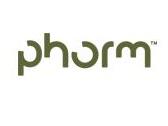UK think tank says Phorm is 'illegal'
FIPR calls on Information Commissioner to investigate

The UK’s leading think tank on internet policy has said that online ad system Phorm is illegal and has called for further investigation into its practices.
In an open letter to the Information Commissioner, the Foundation for Information Policy Research (FIPR) claims that the targeted adverts system contravenes the Regulation of Investigatory Powers Act 2000 that protects users from unlawful interception of information.
Requires user consent
The FIPR believes that for Phorm to be legal it must seek the consent of website operators as well as users. “The need for both parties to consent to interception in order for it to be lawful is an extremely basic principle under RIPA, and it cannot be lightly ignored or treated as a technicality,” it said in the letter.
Richard Clayton, treasurer at FIPR, told the BBC that Phorm was an unnecessary and unwelcome “intrusion” of his privacy. "It's like the Post Office opening all my letters to see what I'm interested in, merely so that I can be sent a better class of junk mail.
“When you look closely, this activity turns out to be illegal,” he added.
Customer benefits?
Get daily insight, inspiration and deals in your inbox
Sign up for breaking news, reviews, opinion, top tech deals, and more.
Phorm has retaliated by claiming that its ‘service’ is not only legal, but has wider customer benefits beyond targeted advertising, such as warnings about phishing sites.
Kent Ertugrul, Phorm’s chief executive, has also defended the company’s privacy stance, saying that the service can be switched off. “Phorm has an on-off switch and does not store any personal data at all," he said.
The FIPR’s letter comes after Sir Tim Berners-Lee, the web’s creator, attacked net tracking in an interview with the BBC, revealing how he would switch his ISP if it tried to force web tracking software upon him.